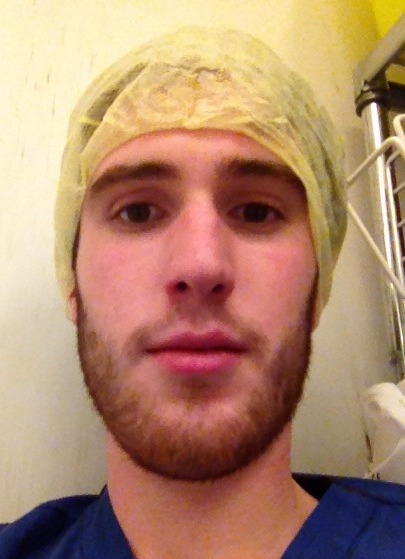May 21, 2014, by studentcontributor
Peer support at medical school
 Hi everyone, I hope you have enjoyed the blog so far! It’s Rob back again, and in my second blog I thought I’d touch upon peer support networks available at medical schools. As some of the blogs have already hinted at, medical school has its lows as well as its highs. But one thing medicine has, perhaps more than any other course is peer support on a number of levels.
Hi everyone, I hope you have enjoyed the blog so far! It’s Rob back again, and in my second blog I thought I’d touch upon peer support networks available at medical schools. As some of the blogs have already hinted at, medical school has its lows as well as its highs. But one thing medicine has, perhaps more than any other course is peer support on a number of levels.
Peer teaching
One of the biggest academic support networks in medical schools is peer teaching. This is where students from older years will come and deliver lectures out of hours on the most tricky parts of modules to help younger students get their head around the key but difficult topics. Here at Nottingham, Scrubs (the surgical society) is particularly big at teaching. They run a weekly summary of anatomy prior to the weeks dissections. On top of this, other teaching includes neuroanatomy and revision sessions for other preclinical modules.
Mock exams
As Hannah mentioned in her exams blog, there are lots of different practical type exams at medical school, which you may not have encountered before. Scrubs run a mock anatomy spotter before each exam, which really helps to prepare you for that. On top of that there are often mock OSCEs (skills assessments) before each on in the first two years. A new addition this year is a mock OSLER (first clinical phase exam – similar to an OSCE) which will see over 60 students who are just starting final year helping the third years revise for their exam.
Welfare networks
As well as academic orientated support networks, here at Nottingham we have a very large peer support network run by MedSoc. The welfare rep is an integral part of the committee and has a role which includes making exam welfare packs, welfare advice guides prior to big decision parts of the course and also co-ordinating the peer support scheme. This is made of around 10 students in each year group who have undergone extensive training to provide support for students in the year below. As of September it will also include some F1 doctors as the first batch of supporters graduate this summer.
As you can see, whatever problem you might face, there will always be support at medical school. And if you think support in a certain area is lacking then there is always scope to increase it and introduce new things. Of course on top of all of this support is the copious amounts that are provided by the university as well. Medicine might be renowned for being one of the most difficult of university courses, but it probably has the best support of any!
No comments yet, fill out a comment to be the first

Leave a Reply